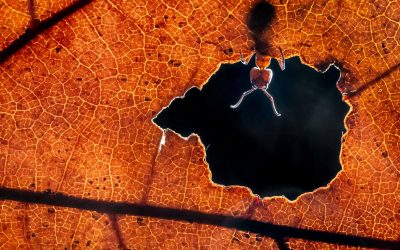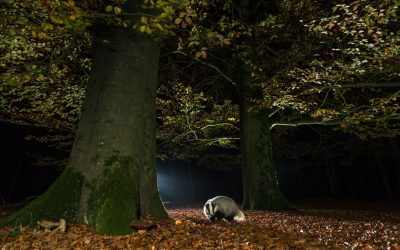How does a deeply rooted love for cats leads to traveling the world and photograph nature in a way that creates visual and emotional impact?
To get an answer to that question, I interviewed Chinese nature photographer Jie Fischer. At the NPOTY contest 2020 she was highly commended in the ‘Landscape’ category. Jie loves nature, although she lives in big cities all her life. She has always loved animals, especially cats and sees herself as a crazy cat lady surrounded by four cats (lol). What Jie Fischer appreciates in animal relationships is the fact that there is no gossip, no betrayal and no claims other than basic necessities. Time to learn more about this inspiring and versatile wildlife photographer.
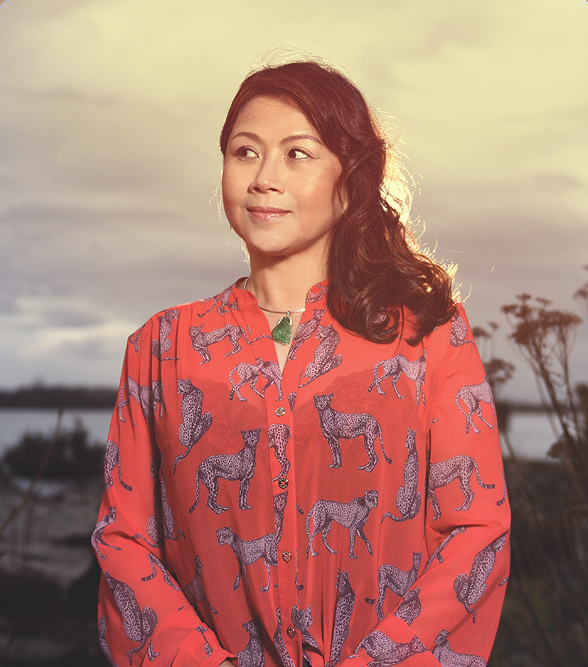

Jie Fischer grew up in Guangzhou, China. As a child, she spent many hours in the darkroom with her father developing photos in the traditional way. As a young adult, Jie left China for Japan and since then she has worked and lived in many countries. Jie Fischer currently lives in Weehawken on the Hudson River across from New York City. Living and traveling in many countries has kept her curious and motivated her to become a better photographer.
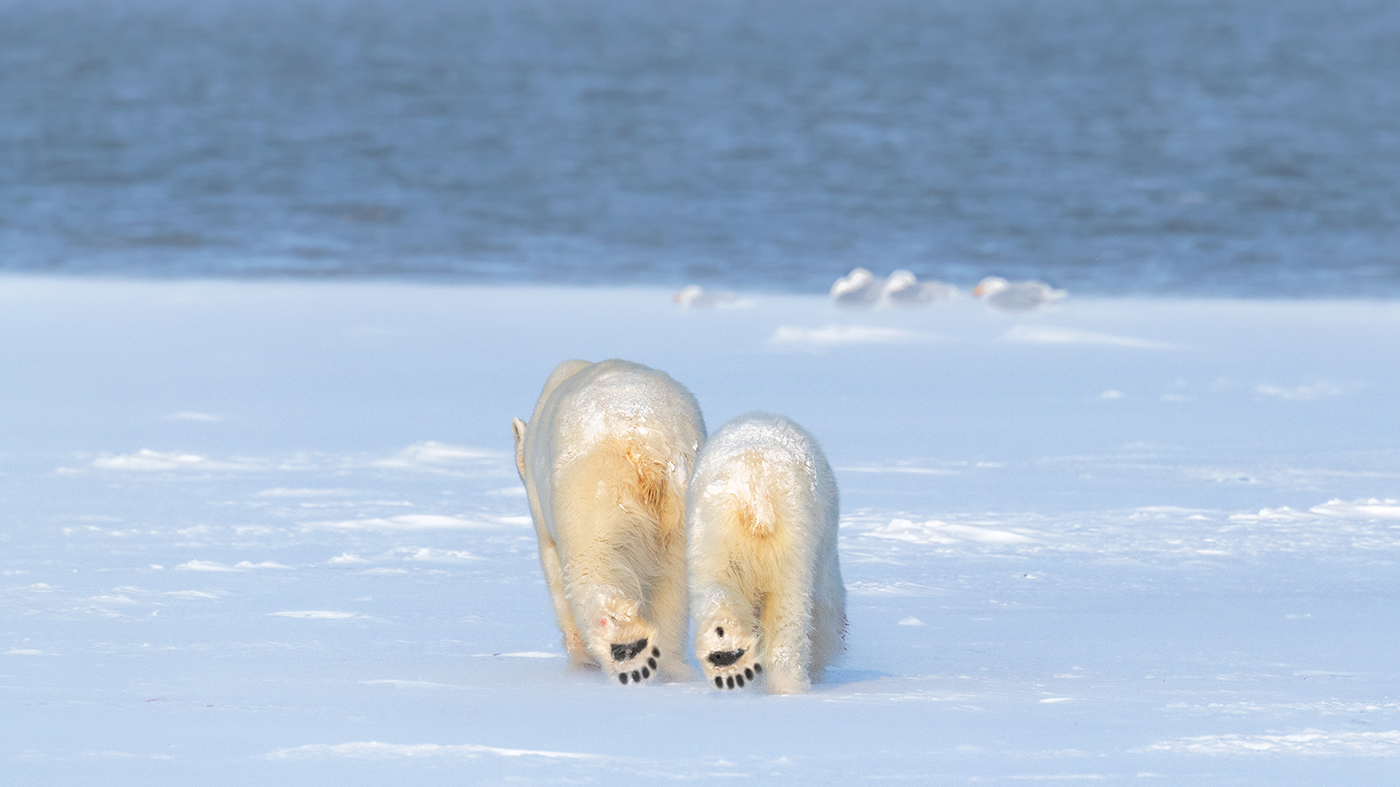

'Tomorrow will be better', Polar Bears © Jie Fischer
Inspiration
“My father was my first inspiration. He encouraged me to grab the camera and create something. I fondly recall the time we spent together in the darkroom developing black and white photos. My father also took me to outdoor activities and taught me a lot about animal behavior.
In recent years I have come to appreciate the guidance from David Yarrow, Jeffrey Wu, Phillip Chang and Thomas Vijayan. I have been on photo tours with most of them and the way they pre-conceptualized their shots in advance, helped me to get better in photography.
Being in the wild you also have to react to the elements that you come across and especially Jeffrey Wu is a master in this. My friend Phillip Chang taught me a lot about post-processing.
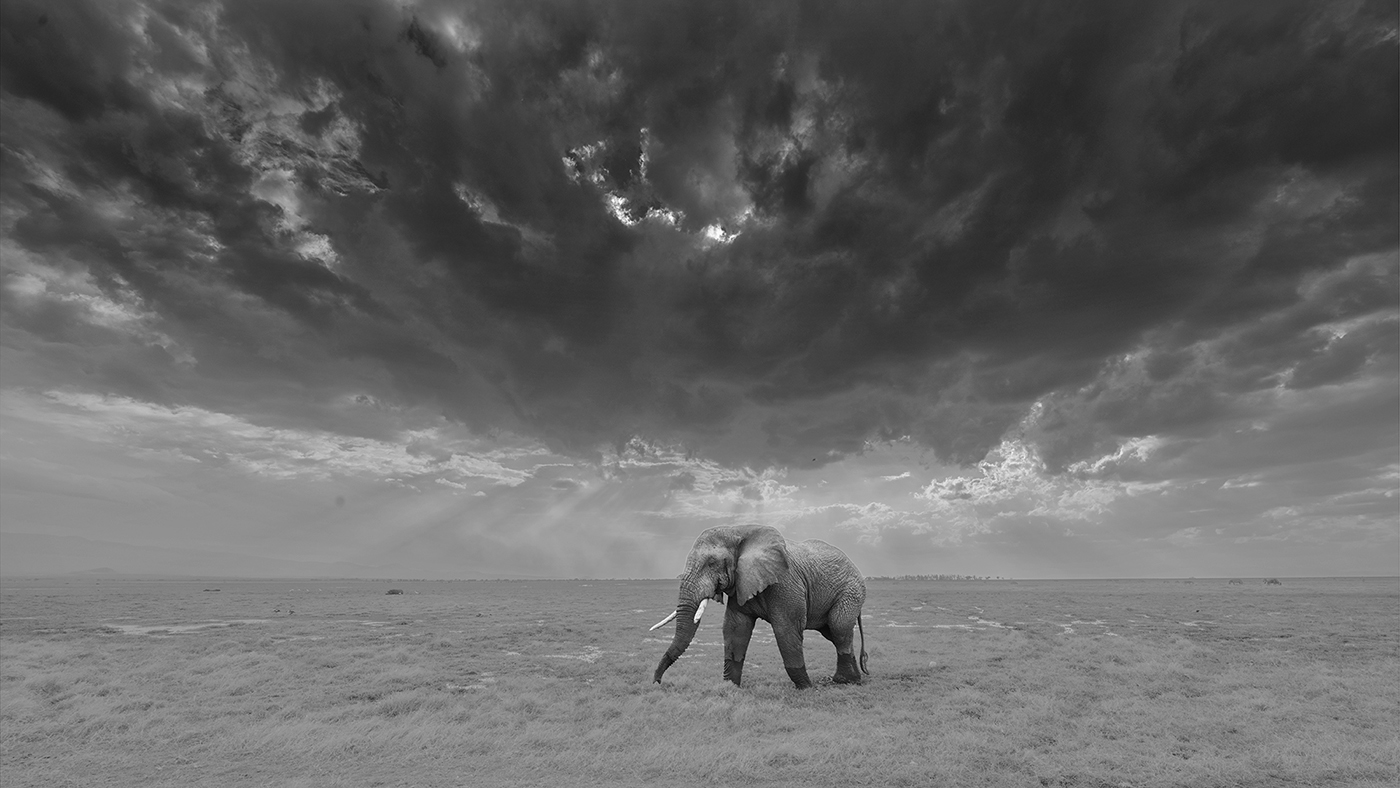

The Elephant © Jie Fischer
I used to think that photography is about capturing a moment. And it is, but it is also much more. As my experience grew, I found increasing inspiration and satisfaction in expressing the harmonious coexistence of humans and animals and the balance in nature, in addition to the visual pleasure that photography brings. That also means that the threats to which wildlife are exposed, for example the extent of habitat loss and climate change, are best illustrated by bringing the animals closer to the public. Fortunately, I have learned so much more about the animals’ behavior over the years, which is necessary to get an appealing photo with impact.
Lastly, being a wildlife photographer has helped me to finally become patient. You can not control nature, sometimes it takes hours to get a good angle, light or pose. I have learned that once you’re out there, you have to practice patience, and now I am willing and able to wait for the right moment.”
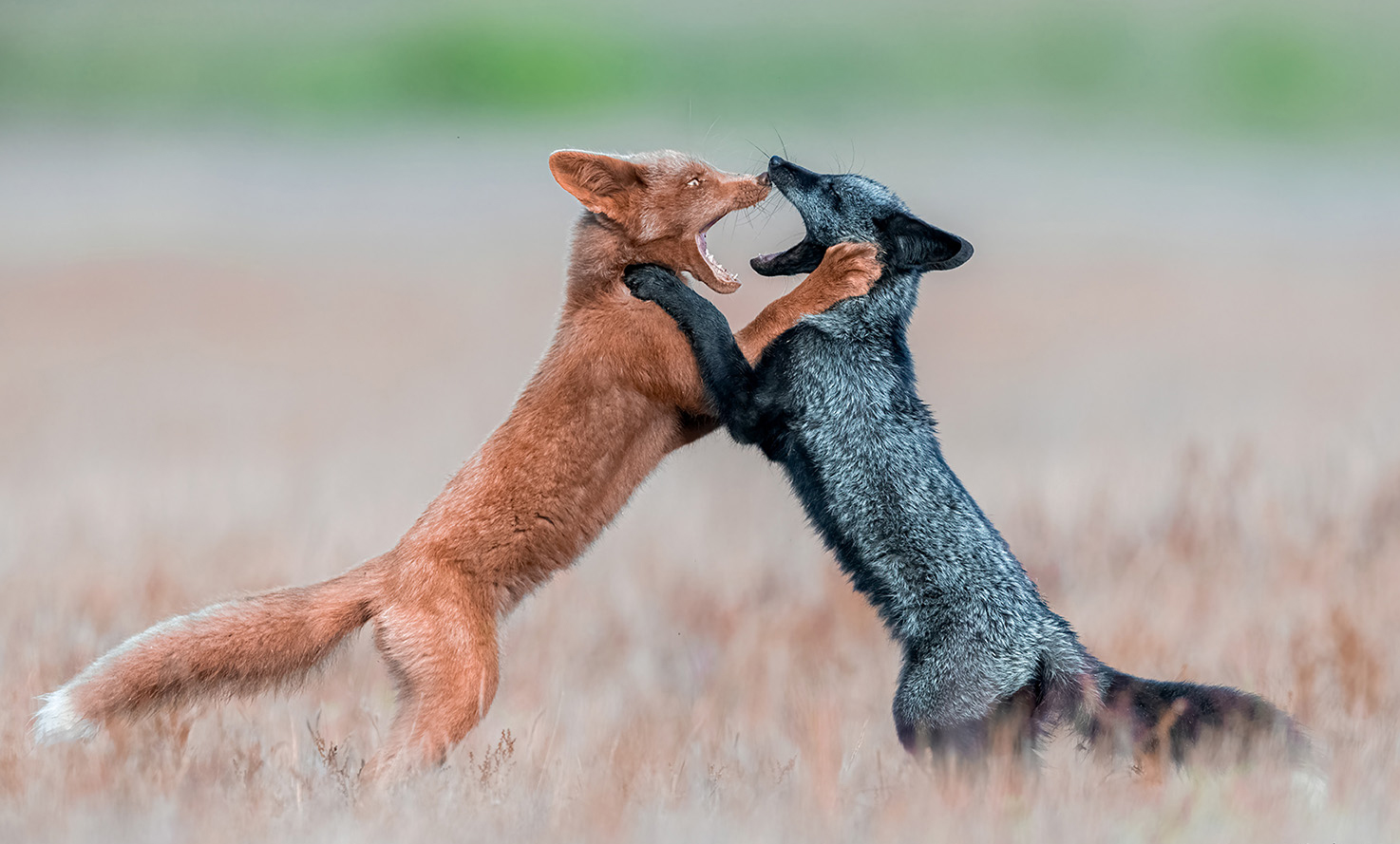

Foxes playing © Jie Fischer
Preparation
“I like to be prepared when I go on a photo trip. This means that before I go on a trip I read a lot about the area and the wildlife in place, look at images and study animal behavior in order to be prepared for the decisive moment. I have some photos pre-conceptualized and usually these are the most important photos for the trip. But it is also important to be able to improvise, to react to a situation as it occurs. Beauty has many appearances and especially the difficult situations can create the best outcomes.
Becoming a good wildlife photographer, requires patience and perseverance in addition to technical skills to ever capture that exceptional photo. I recommend photographers find inspiration by visiting art exhibitions and entering photo competitions. In a digital world of abundant content creation, the proximity and accessibility of unusual content becomes a deciding factor for a photo that stands the test of time.”
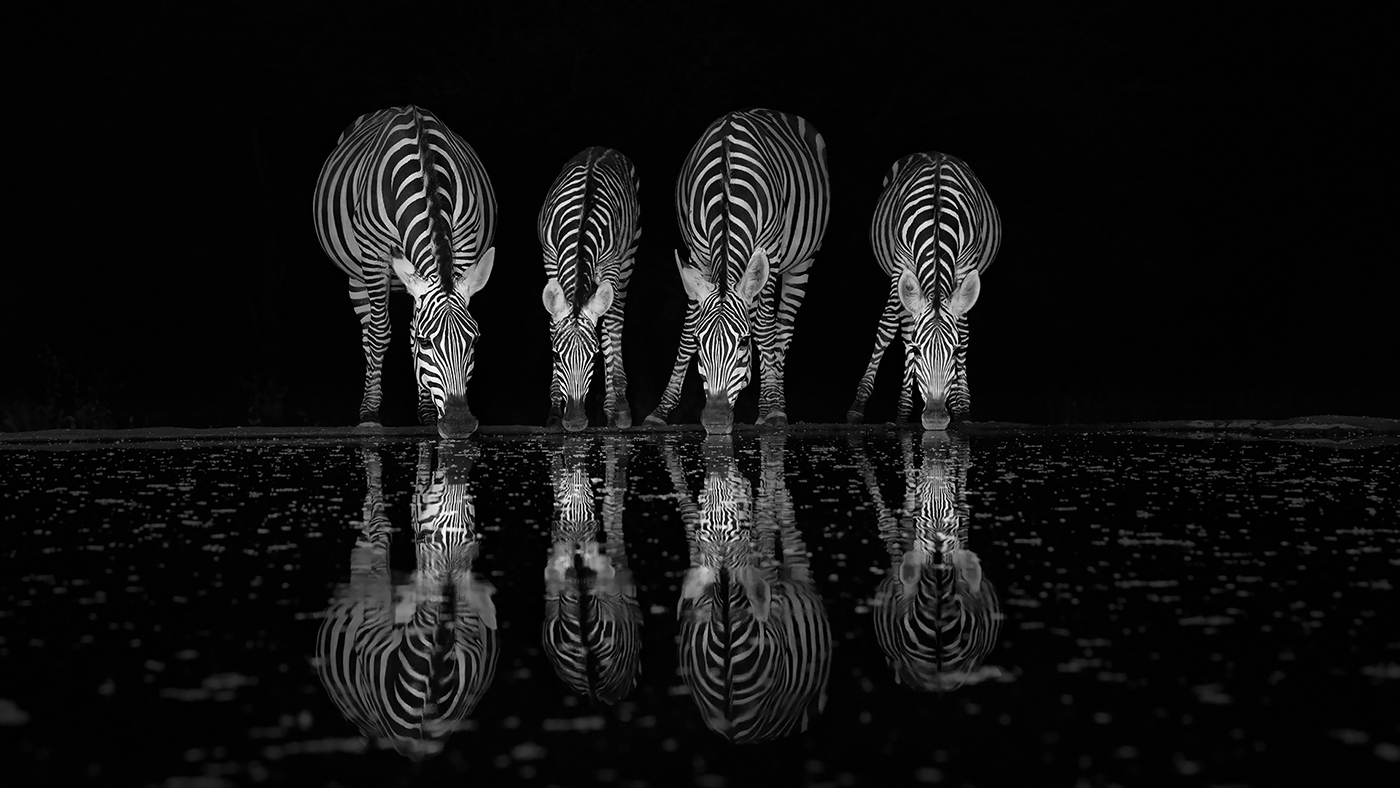

Zebras drinking water © Jie Fischer
Signature
“I don’t have a clear signature yet, I think an explicit and recognizable style is a bit too much for the level I am at right now. But I would say that the way I play with light and the effect of light diffusion that I often use in my pictures is a reoccurring characteristic. I also show the animals in their natural habitat, showing their natural behavior, at times dramatic but mostly kind and gentle.
I will always remember my first trip to the African continent in 2013. I fell in love with Africa, fascinated by the free and wild nature, but also the relatively peaceful coexistence of wildlife and men. I always want to show the interaction between animals, such as in parent-child relations, family activity or hunting, in the picture because I prefer the visual and emotional impact of these moments, thus creating a lasting memory.
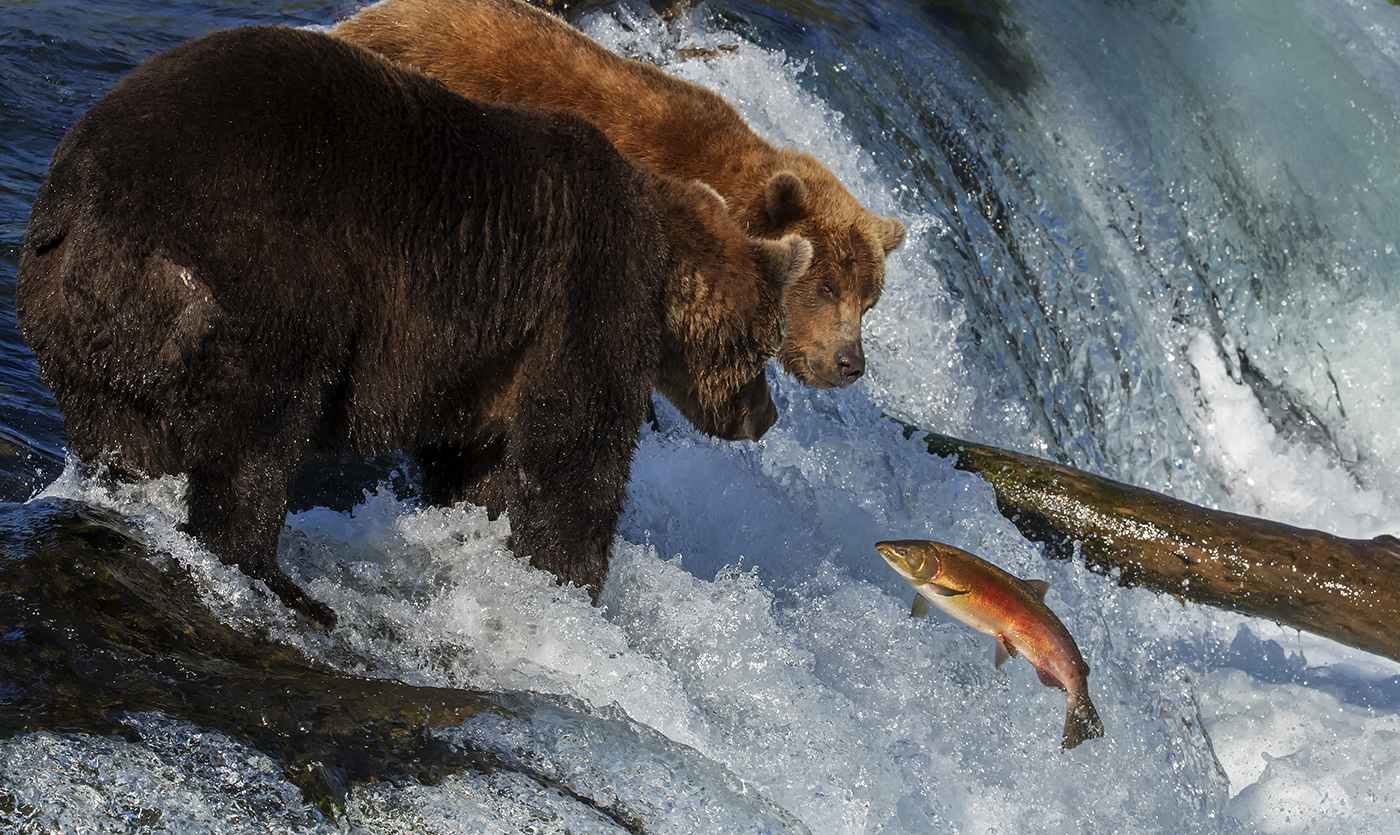

Engrossed @ Jie Fischer
The visual effect of aerial photos is very different. These photos give the impression of an oil painting, with the intriguing appeal that it only becomes a photograph on closer inspection. One of the photos that inspired me to take up aerial photography was Phillip Chang’s photo of Lake Magadi. The photo has great balance, technical superiority and an intriguing composition that is very pleasing to the eye. Now that I practice aerial photography myself, I understand how difficult it is to compose well from a fast-moving helicopter, and appreciate this shot even more.”
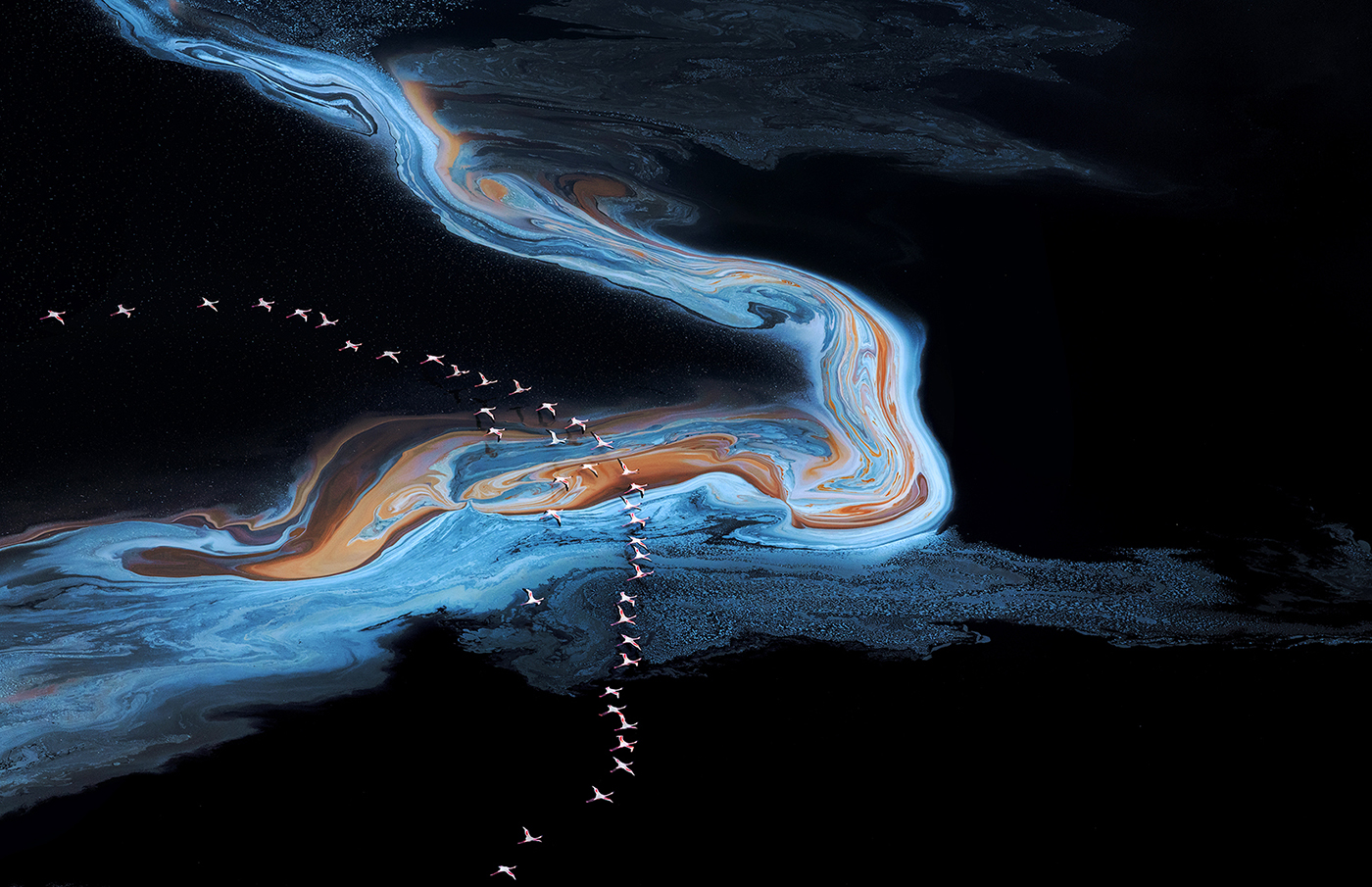


Fly Over © Jie Fischer
Ambition
“Most wildlife photographers are interested in wildlife conservation. It belongs to the territory, literally and figuratively. I am of course no exception. I am increasingly interested in not only making our world more colorful, but also using my photography as a means to provide insights and leave a message. I want to convey the beauty of nature to support a more conscious behavior towards nature. To achieve this, insight into the context and behavior of the animals I photograph is essential.
Creating awareness is the most important motivation for me. But in the case of photography to me the journey is as rewarding as the destination. Meaning that for me the joy in creating is as important as the effect these photos hopefully have on the viewer.”
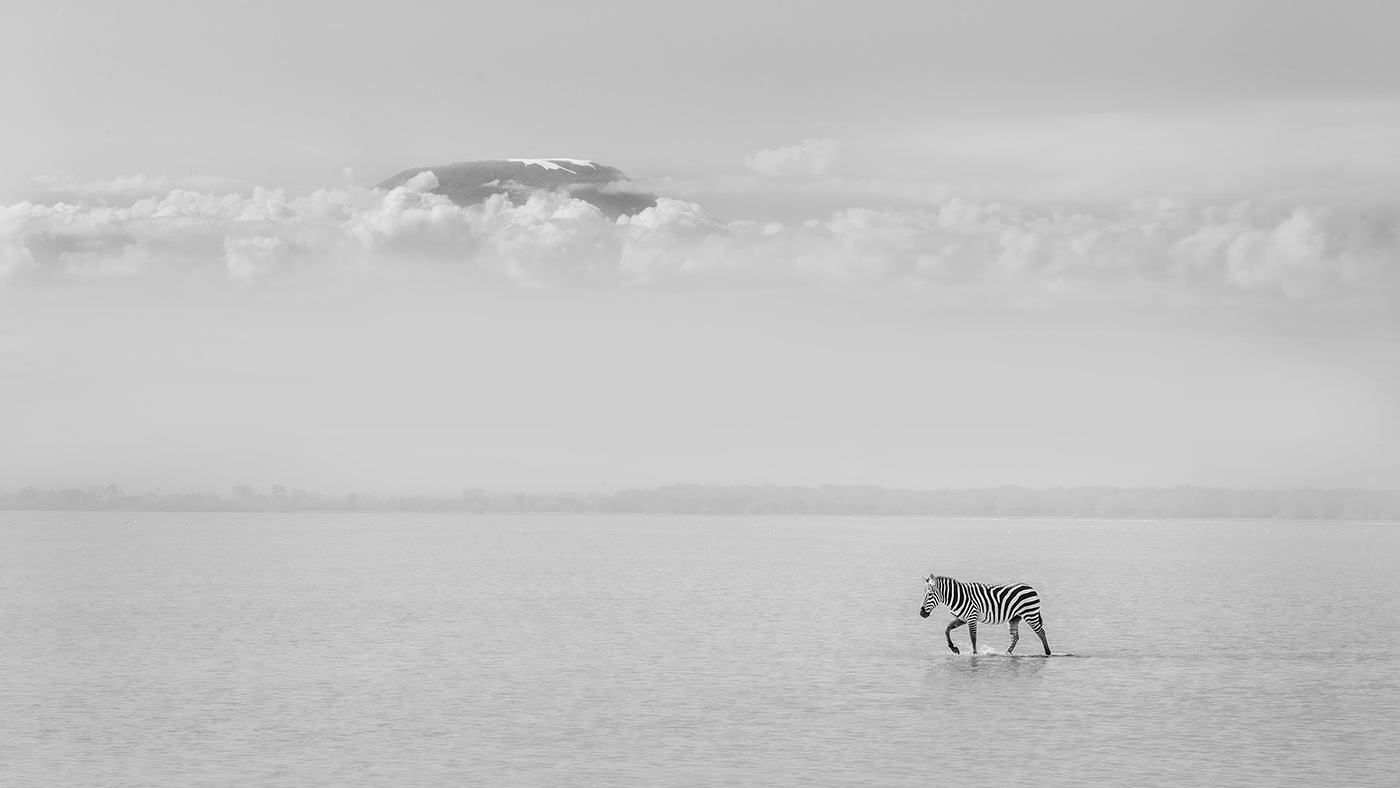

At Kilimanjaro © Jie Fischer
Photography contest
“I am a competitive person but also a bit lazy (lol). Participating in competition brings out the best in me. I started in small contests and have been fortunate enough to raise through the ranks. Being able to compete successfully at such prestigious contest like Nature Photographer Of The Year is very fulfilling and makes me very proud. In order to compete successfully, one has to refine its techniques in shooting, post-production and story-telling. The contest also helps me to get inspired and help me to visualize my next shot. I can only encourage everybody to participate. It is the best way to improve ones skill set.”
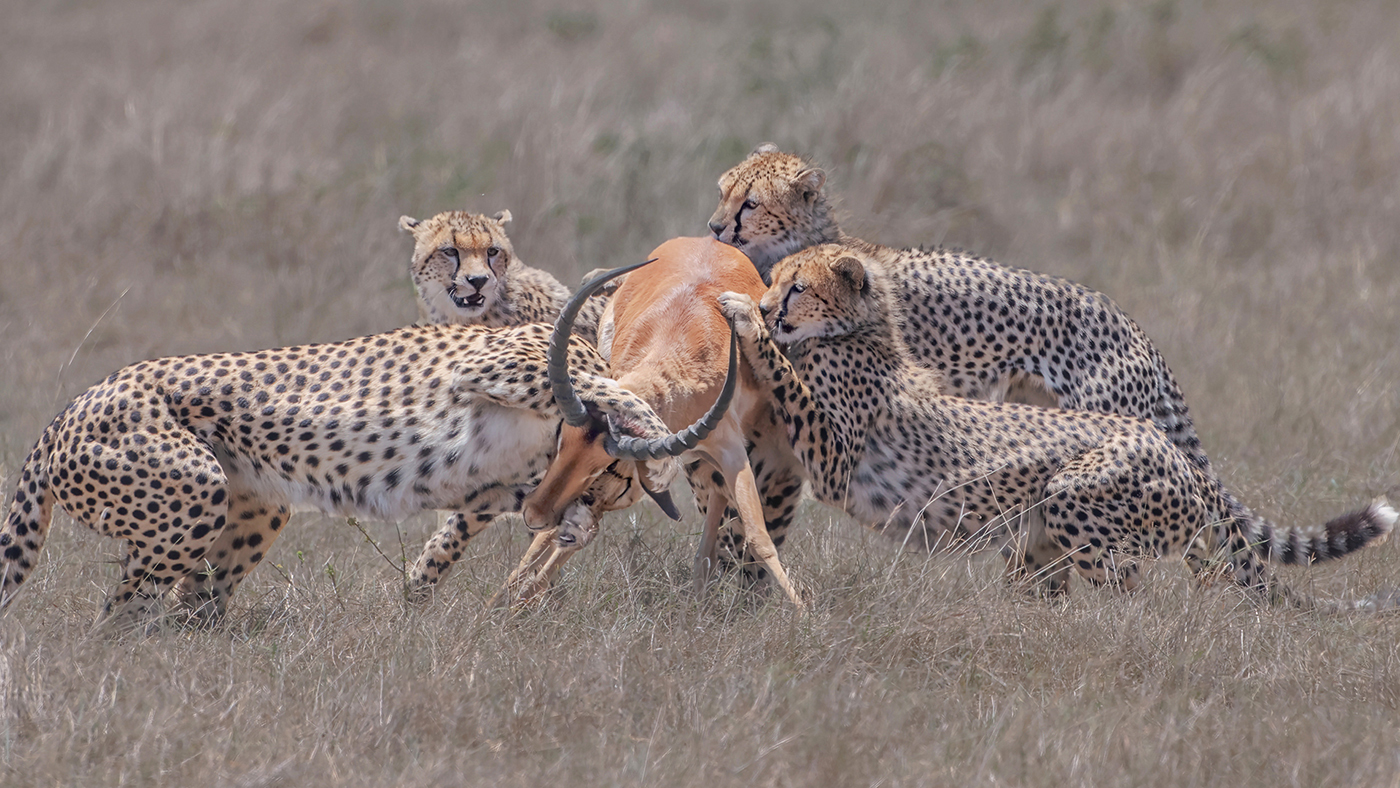

Hunt together © Jie Fischer
Social Media
“I am proud of the work I do, both from an aesthetic point of view and from my contribution to nature conservation. I find it important to spread my message. That’s why access to the general public through a platform like IG or FB is important to me. In my journey to become a better photographer and to strengthen the photographer society, peer review and recognition are important to me. I actively participate in the Photographic Society of America (PSA).”
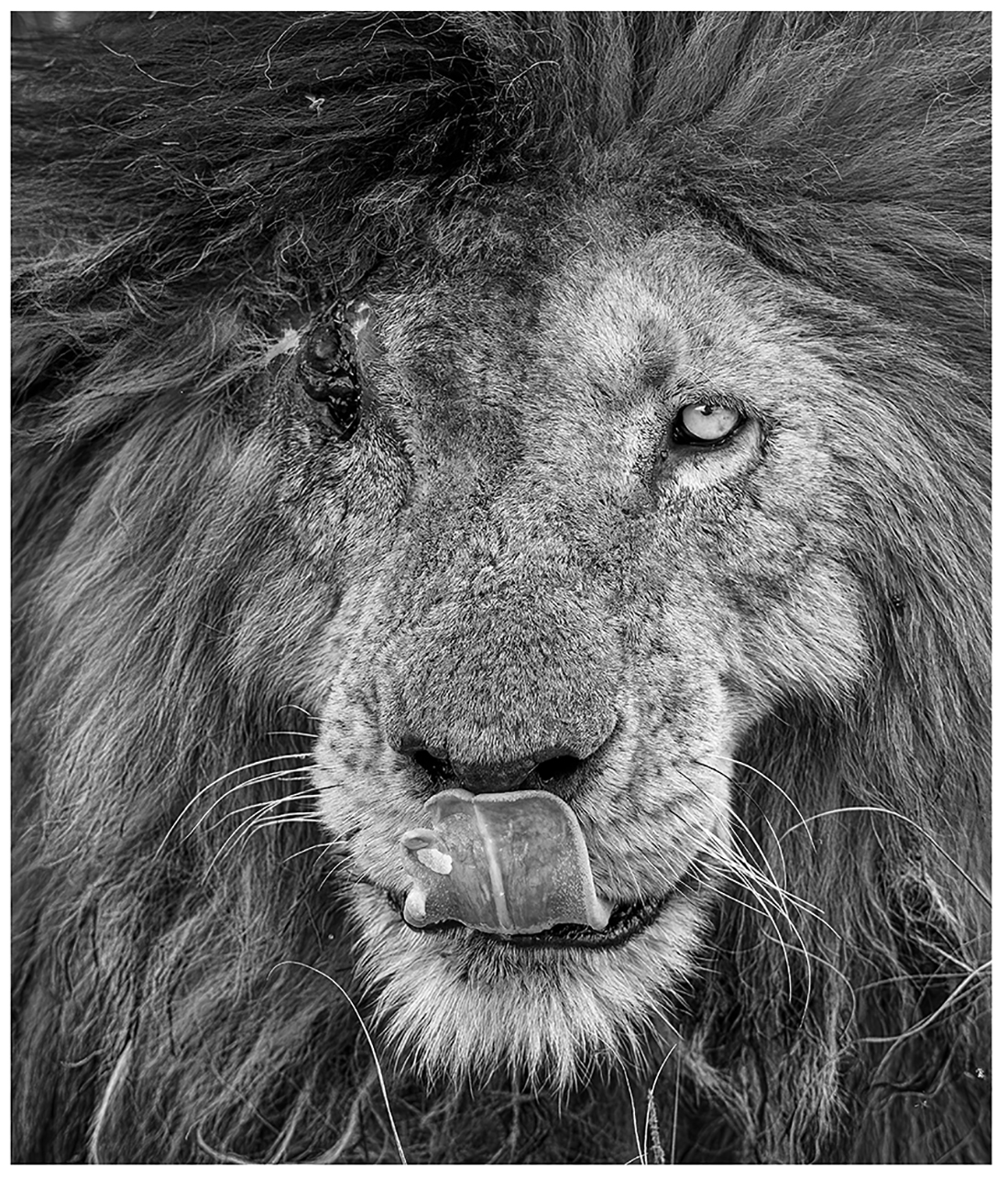

Scar Face © Jie Fischer
Covid-19 effects
“I was lucky enough to be able to travel during the various Covid waves. Not as much as usual, but you have to adapt. As an alternative, I started shooting more street life and architectural projects. I hope to further refine these possibilities and train my eye for structure and design. I think this will also help me in my nature photography.”
At the end of the interview I asked Jie the question: “if you could ask another nature photographer one question, who would that be and which question would you ask?
Jie answered: “I would love to sit together with one of my favorite female nature photographer and conservationist Christina Mittermeier, whom I admire for her photographic style and voluntary work. Since many years I am bothered by the ever increasing amount of plastic in the ocean and I would love to ask her about how to engage even further into the conservation of the marine ecosystem. I also would like to understand how she has become such a fantastic storyteller with her photos.”
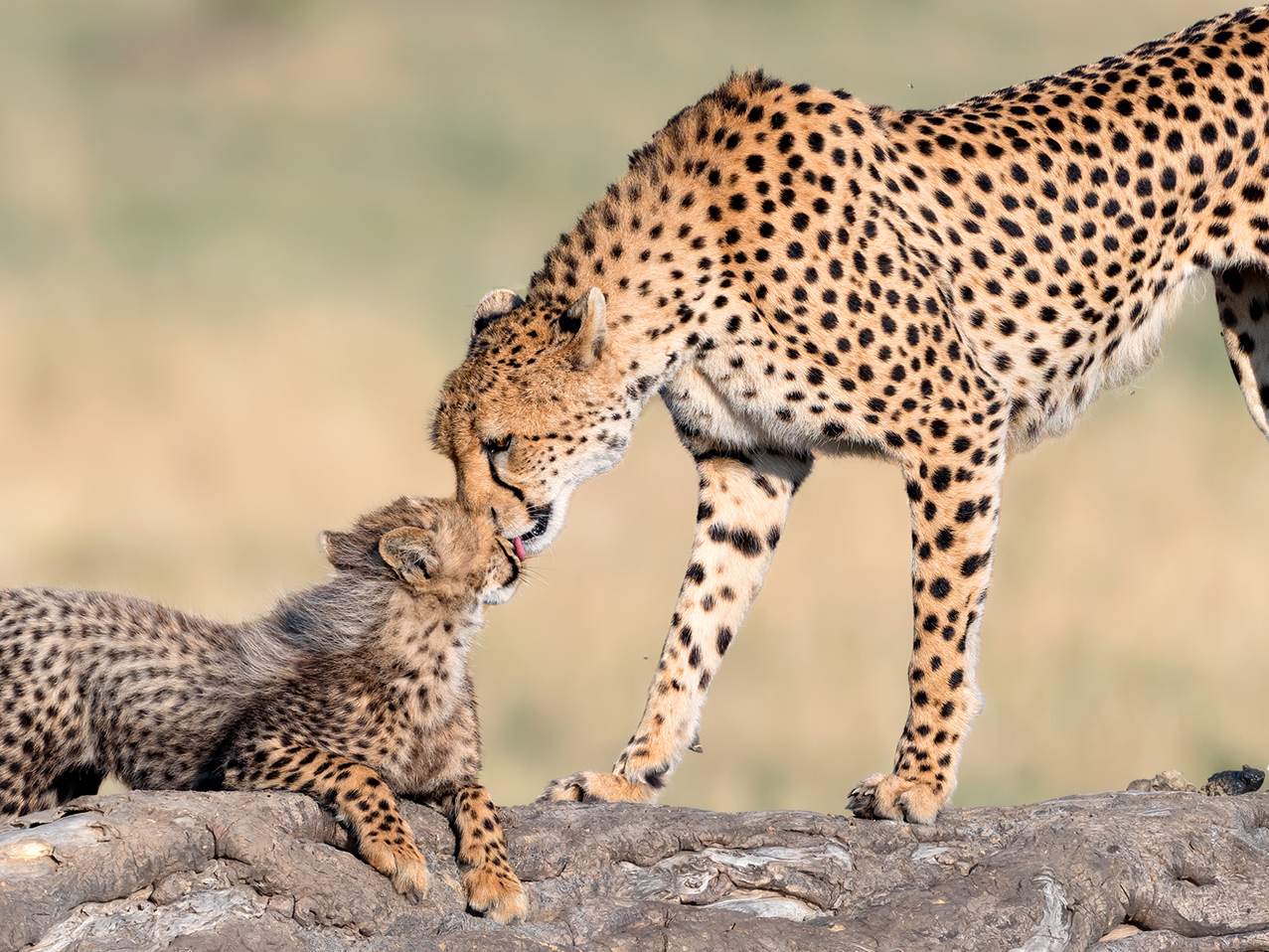

Mother's love © Jie Fischer





